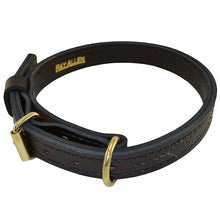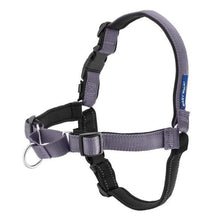Signs That Your German Shepherd Is Stressed Out

German shepherds are super cool dogs but even the calmest can get stressed out. Recognizing the signs that your dog may be stressed is important for their physical and emotional health.
Most dogs will experience stress at some point in their life. Some common triggers for occasional stress include going to the vet, fireworks, thunderstorms, or being introduced to a new place.
Active working breeds such as German shepherds can also experience stress when they’re ill, injured, scared, bored, frustrated, have too much outside stimulation, a family member is sick, when there is a sudden change to their routine and much more.

It’s normal for dogs to show discomfort and anxiety when experiencing a variety of situations and not all stress is a bad thing. Most dogs can usually be reassured, and the stressor is soon forgotten as they go on with their day.
However, chronic stress leads to serious problems. If your dog is often stressed, they may develop behavior problems such as anxiety, engaging destructive behaviors, aggression, anorexia, depression, and more.
Helping your dog get through stressful situations is important. Most German shepherds adjust and adapt; others may find it more difficult. High levels of stress are even detrimental to their physical well-being and can increase their blood pressure.

Dogs that are easily stressed or suffering from chronic stress are not happy. If the stress is bad enough, they may even be miserable, and it can reduce their quality of life and even lead to illness. Therefore, identifying their stress is important.
Before we look at the symptoms of stress, here are some of the most common reasons why dogs get stressed out:
- Loud noises
- Going to the vet
- Experiencing illness or trauma
- Changes in the family dynamic, death, divorce, marriage, new baby, etc
- Changes in schedule
- Moving
- Storms
- Construction
- New pets or people
- Your elevated stress level
Some signs that your dog is stressed out include:
- Panting
- Shaking
- Yawning
- Tucking tail
- Licking lips
- Sweaty paws, leaving footprints
- Pining the ears back or down
- Showing the whites of their eyes
- Excessive barking, vocalizations, whining
- Avoiding situations, places, people, or other animals
- Restlessness, pacing, inability to settle down
- Hyper alertness
- Disobedience
- Acting fearful
- Hiding
- Digging, chewing, destroying things, etc.
- Trying to escape
- Growling, snapping, biting, aggression
- Sudden changes in behavior
- Destructive behavior
- Changes in eating habits
- Changes in bowel habits such as gas and diarrhea
- Bathroom accidents in the house
- Depression lack of interest in things they once enjoyed
- Obsessive behavior, circling, pacing, overgrooming, etc
- Developing a phobia

Many of the signs your dog is stressed are also signs that your dog might be sick. So, it’s always a good idea to have your dog checked out if they’re suddenly acting stressed, especially when you can’t identify the source of their troubles.
If your dog is stressed out, there are some things you can do to help. Punishing your pet won’t work and will make the problem worse. You’ll need to tackle the situation at the source and that begins with eliminating the source of the stress, if it’s possible.
Since eliminating all stressful situations is impossible, here are some tips that can help you help your dog:
- Stay calm and manage your reactions
- Exercise your dog daily
- Play with your dog to strengthen your bond
- Train your dog to build their confidence
- Praise and reward your dog for good reactions
- Distract your dog with toys, etc during stressful situations, like storms
- Use desensitization and use counter conditioning techniques
- Be patient, don’t force your dog to face their fears
- Provide a safe environment
- Get professional help when you need it
- Give your dog a safe place to relax in
- Play music to create a distraction from outside noise
- Use nutraceuticals such as supplements, calming chews, CBD, etc, if needed
- Use massage to calm your dog
- Protect your dog as well as other people and animals if they are in an overstressed or panicked state of mind

Life can get stressful and that includes our pets. No matter how much we wish we could control our situation, it’s not always possible. Fear and stress can even be helpful in some instances because they act as an early warning system that something may be wrong.
The best thing you can do to help your dog manage stress is to train them to look to you for guidance, which will give them the tools and confidence they’ll need to handle most situations and then be their best friend during those times that they need you.
You also may like: German Shepherd Home Alone: Preventing Boredom And Anxiety
























